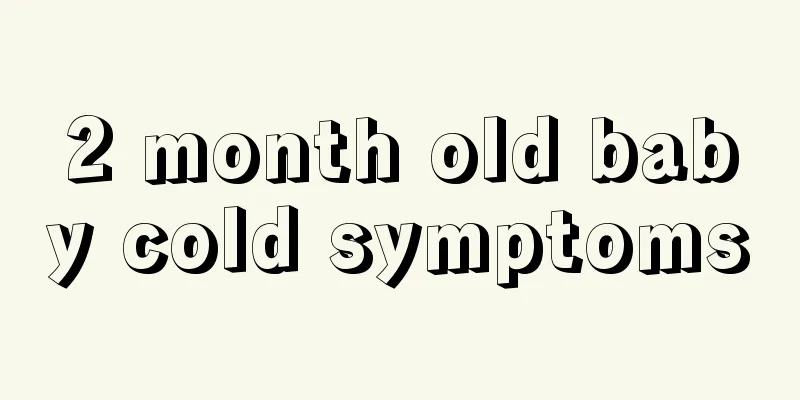Why do young children with acute gastroenteritis only vomit but not have diarrhea?

|
For children, because their stomachs and intestines are not yet mature, they are prone to gastrointestinal diseases if their family members do not take good care of them. Clinically, the incidence of acute gastroenteritis in young children is still very high, which is a headache for some parents. In fact, acute gastroenteritis in children is not a difficult disease under today's medical technology. So what is the cause of acute gastroenteritis in children that only vomits but does not defecate? Causes 1. Intestinal infection factors Generally speaking, children suffer from acute gastroenteritis because of intestinal infection, often caused by viruses and bacteria. Rotavirus infection is more common in autumn and winter. Pathogenic Escherichia coli is the most important bacterial infection. 2. Extraintestinal infection factors Inflammation of the upper respiratory tract, nephritis, otitis media and other diseases outside the gastrointestinal tract may cause acute gastroenteritis due to fever and absorption of bacterial toxins, which may reduce the secretion of digestive enzymes and increase gastrointestinal motility. 3. Non-infectious factors (1) Climate factors Changes in climate, such as too cold weather increasing gastrointestinal motility, or too hot weather reducing the secretion of gastric acid and digestive enzymes, can also cause acute gastroenteritis. (2) Improper feeding If infants and young children are fed improperly, such as eating too much or too little, eating too much starchy food too early, or suddenly changing food or weaning, they may suffer from diarrhea and cause acute gastroenteritis. (3) Allergic factors: Allergies to milk, eggs, wheat, and nuts may cause symptoms of acute gastroenteritis. Clinical manifestations If acute gastroenteritis causes mild diarrhea, the patient is generally in good condition, with less than 10 bowel movements a day, which are yellow or yellow-green in color, with a small amount of mucus or white soap-like stool, and not much feces. Sometimes the stool is "egg drop soup-like". Acute gastroenteritis can also cause severe diarrhea, with bowel movements several to dozens of times a day. Large amounts of watery stools, small amounts of mucus, nausea and vomiting, loss of appetite, and sometimes vomiting of coffee-like substances. If hypokalemia occurs, there may be abdominal distension and symptoms of systemic poisoning; such as irregular low or high fever, irritability and subsequent lack of energy, confusion, and even coma. |
<<: Is a child's fever of 38 degrees serious?
Recommend
My baby has a fever for three days.
Nowadays, every child is the treasure of the fami...
Causes of indigestion in babies
When a baby is just born, its body systems are st...
How to treat a child's trachea
It is common for children to have poor trachea in...
Causes of neck pain in children
Every symptom of a child's body is a problem ...
What foods can children eat to grow taller
Whether a child grows taller or not has a lot to ...
What should I do if my child is always constipated?
Children are more prone to constipation, and it i...
Children should be alert to the dangers of taking too many calcium tablets!
Calcium plays a very important role in children&#...
What to do if your child has a cough
Children may cough due to choking. Cough is one o...
How to treat skin allergies in children?
Pediatric skin allergies not only make children f...
White pimples on baby's neck
I don’t know if some mothers have found that thei...
What are some ways to cultivate children's imagination?
Every child is a completely different individual....
How to treat spleen deficiency constipation in children
Spleen deficiency constipation is a common diseas...
What is the reason for a child's cough with white phlegm?
In winter, the weather is cold and many people ca...
What are the causes and treatments of hair loss in children?
The problem of hair loss is most likely to occur ...
Is it useful to use honeysuckle to wash baby eczema?
Eczema is a common skin disease in infants. So, d...









